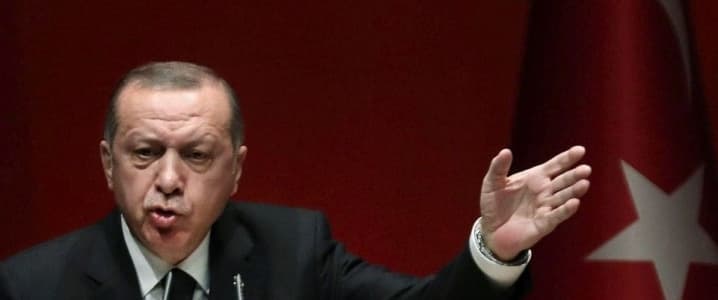Turkey’s location has always given it a key geostrategic advantage. Its proximity to the Middle East and the Caspian as well as its position on the Black Sea make it an indispensable member of NATO. In recent years, however, Ankara’s diplomatic relations with its Western allies
The Turkish invasion of 1974 separated the island between an internationally recognized Cyprus and the Turkish Republic of Northern Cyprus which is only recognized by Turkey. To make matters even more complicated, Nicosia is a member of the EU while Ankara’s membership request is still pending.
Turkey wants a share of the newfound energy wealth to go to the Turkish inhabitants of the island. Furthermore, Ankara has sent exploratory vessels to Nicosia’s EEZ which has evoked a sharp rebuke from the EU.
Brussels has made its position very clear, stating that Cyprus is an independent nation with widespread international recognition and that Turkey has repeatedly used force to deter energy companies from exploring the island nation’s EEZ.
Last week, the foreign ministers of the EU agreed on economic sanctions over Turkey’s actions in Cyprus’ waters. These include asset freezes and travel bans. Also, technical and material support for drilling activities is prohibited. The recent decision follows a previous round under which arms sales were banned following the country’s invasion of Syria.
But there is only so much the EU can do when it comes to influencing Ankara’s decision making. Turkey is sheltering approximately 3.5 million displaced persons. The EU is providing financial support to Ankara in exchange for preventing the continuation of the refugees’ journey to Europe. President Erdogan has already threatened to flood Europe with the displaced persons who for several years have called Turkey their "home". According to some Greek officials, Ankara has the capability to immediately "send” 500,000 refugees over into Europe.
More importantly, thousands of detained ISIS fighters are currently in Turkish jails or under the supervision of Turkey-backed Arab fighters in Syria. Ankara is calling on European countries to allow the radicalized citizens to return to their country of origin to face trial there. Domestic political developments in several European countries, however, hamper the processing of "home-grown” Islamic terrorists.
Turkey is aware of its advantage vis-à-vis the EU and it is not shy of exploiting it. Erdogan has remained rebellious in the face of increased economic and political headwinds domestically and abroad. During a state visit to the U.S., Turkey’s president warned the EU that it could send a flood of refugees and detained terrorists across the border.
According to Erdogan "Turkey is not one of those countries you have come to know until now. We are a country that sits at the negotiating table with you." Ankara's ascension talks with the EU have been in stalemate for years now and membership is increasingly looking like a fantasy.
It is unclear how Turkey will exploit potential gas discoveries when Western energy companies are not allowed to share technological knowhow. Ankara could turn to Russia's state-owned energy companies who are under Western sanctions themselves and therefore would be willing to make a deal with Ankara. However, Moscow historically has enjoyed good relations with Cyprus due to their shared Orthodox religion. Consequentially, it remains uncertain how Russia will play this geopolitical conundrum.
Realistically, Turkey’s options here are limited. Despite the fraught relations, the country remains a member of NATO and its most important economic partners are Western countries. Therefore, Ankara will most likely choose to deescalate before matters go out-of-hand.
(by Vanand Meliksetian for Oilprice.com, November 19, 2019)




